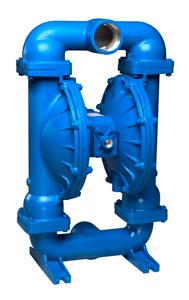|
COLLECTING and processing grease trap waste can be an unpleasant task. Grease traps are usually installed where there are restaurants and food halls and in these areas, all kitchen sink and basin water passes through a grease trap before the water is discharged to sewer. Invariably grease traps are prone to unregulated water discharge. That is, whatever item can pass through and down a commercial kitchen drain, will generally be deposited inside the grease trap. Such items include food scraps, bones, cloth and paper napkins, cutlery and drinking straws. The grease trap is emptied by a certified contractor who removes the collected grease, oil, water and solids and transports it to a waste-handling facility for processing. It is the solid matter that causes problems at these waste facilities. A major national waste management company encountered such a problem at one of their It was at this stage of the process that pumping quickly became a major problem for the client. Initially they purchased a three-inch air diaphragm pump fitted with “ball check-type” valves to transfer the solids laden water to the next stage of the process. The problem was that a regular “ball valve-type” diaphragm pump has limited solids handling capability. Such was the magnitude of the problem for the plant operators that the original pump would block daily. Sometimes on a bad day it might be cleaned out up to eight times. The client was already a Sandpiper diaphragm pump user and was aware of the 50mm “solids handling flap valve” pump, but did not know that a larger 75mm pump was also in the portfolio. After having such a bad experience with the competitor’s three-inch ball valve pump, the client was a little reluctant to spend more money on a product that possibly may not fix the problem. So Kelair provided a brand new pump on 30 day trial. The Sandpiper 75mm Heavy Duty Flap Valve pump is designed to pass pipeline sized solids without blocking. In layman’s terms this means that if a solid particle can pass down the suction pipe into the pump then the Sandpiper Flap Valve pump should pass it without blocking.
|
The pump operated successfully over the trial period and the unit was purchased by a very satisfied customer.
|






